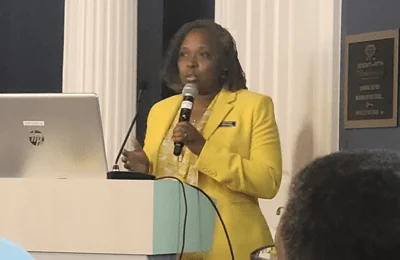There are 33 states that have implemented a graduated income tax, and Gov. J.B. Pritzker is trying to make Illinois the 34th by eliminating the state's flat tax system in favor of what he and his Democratic supporters are touting as a new "fair tax."
A graduated or progressive income tax is when higher earners pay more taxes, and lower earners pay less. Illinois currently has a flat income tax, in which all taxpayers pay the same percentage of their income.
“Under Illinois’ flat-rate tax scheme, a person earning $50,000 per year pays the same tax rate as someone who makes $50 million,” wrote Frank Manzo, policy director of the Illinois Economic Policy Institute, and Robert Bruno, director of the Project for Middle Class Renewal, in a co-authored piece in Crain's Chicago Business. “Once exemptions and carve outs are factored in, the average working-class Illinois resident is actually paying a higher percentage of his or her income in state taxes than the person making $50 million.”

Wirepoints founder Mark Glennon
Manzo and Bruno are both strong proponents of Pritzker's proposal, and believe the governor's rhetoric that such a system can resolve the state's $3.2 billion deficit while improving things for the struggling middle class.
“Because millionaires and billionaires aren’t paying their fair share, state government doesn’t have enough money to meet its responsibilities to fund schools, fix roads, deliver core services, or pay down debts,” they wrote. “In turn, this causes state and local governments, desperate to avoid insolvency, to raise revenue in other regressive ways — like increasing sales taxes or raising local property taxes.”
But Wirepoints founder Mark Glennon and many others strongly disagree.
“[Many Illinoisans] know that tax increases with no reforms don’t work," Glennon wrote on his political watchdog website. "They know taxpayers and employers are fleeing [the state]. They know that addressing inequality through state tax increases can make the state less competitive [by attracting and maintaining business growth]. They know their leadership lies incessantly about our problems. Those who don’t know soon will, when they see the false promises of the 'fair tax' proposal play out.”
Glennon also challenged the accuracy of the graduated tax supporters' claims, such as the $3.2 billion debt.
“It’s preposterous – off by several multiples, depending on exactly what you choose to count,” Glennon, who believes the number is closer to $10 billion, wrote. “Just the annual funding shortfall for five of the state’s pensions alone is $4.7 billion per year. That’s based on the 'actuarially determined contributions' contained in the most recent actuarial reports, and they’re based on assumptions widely regarded as far too optimistic.”
Illinois House Minority Leader Jim Durkin (R-82nd District) declined to comment when contacted by West Cook News.






 Alerts Sign-up
Alerts Sign-up